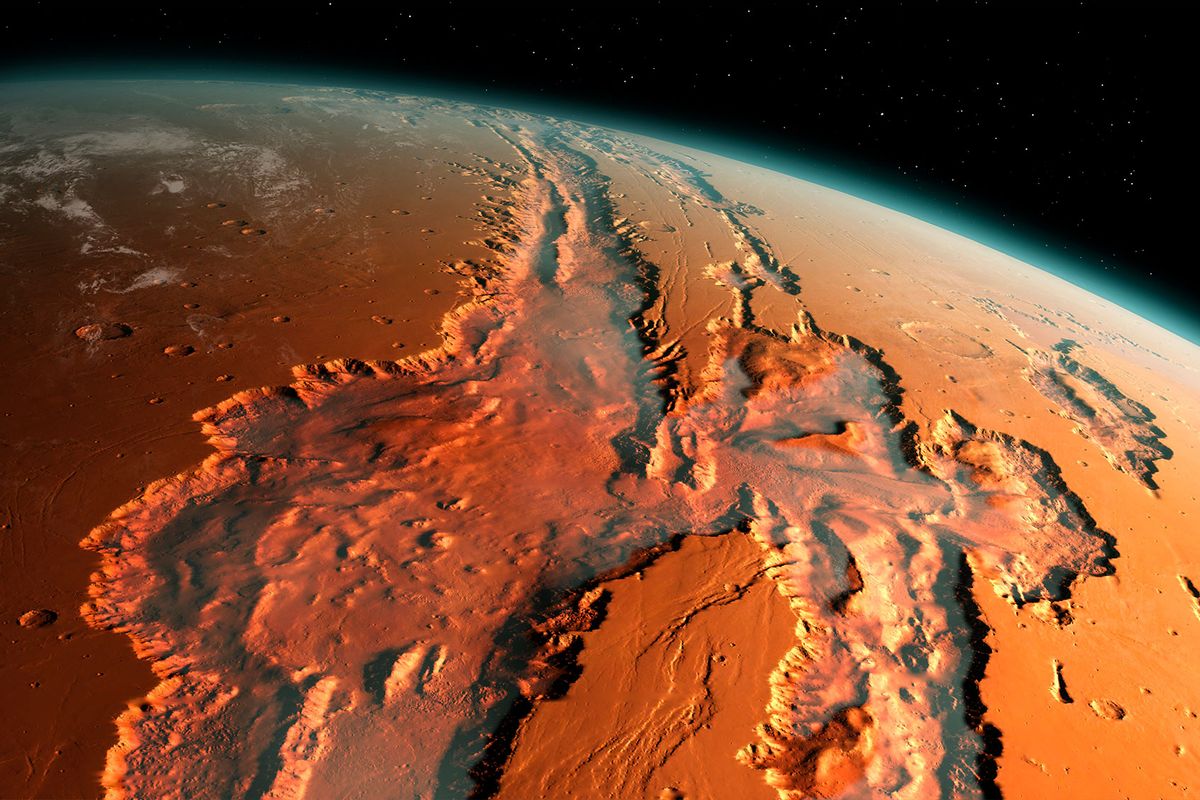Since the dawn of astronomy, humans have been obsessed with the question as to whether there is life elsewhere in the universe. Indeed, much of the scientific focus on Mars is devoted to answering this question, as there are hints that the red planet may have had microbial life in its youth.
But you don't actually have to go to Mars to study the planet. Conveniently, around 11 million years ago, a cluster of Martian meteorites known as the nakhlites struck Earth, likely propelled by the force of a huge impact on Mars that send debris into the solar system that eventually found its way to Earth. Swedish doctoral student Josefin Martell — along with a team of scientists at Lund University — have been investigating the properties of a cache of these rocks.
Though Martell's team is not searching for biosignatures in this space debris, the chemical composition of meteorites reveals the abundance of life's essential prerequisite on Mars. Investigating how much one nakhlite came into contact with water while on Mars could answer what, in a press release, Martell called the central question of whether life ever existed there.
RELATED: The 24-year-old mystery of whether a Martian meteorite harbored microbial life is still unsolved
"A more probable explanation is that the reaction took place after small accumulations of underground ice melted during a meteorite impact about 630 million years ago. Of course, that doesn't mean that life couldn't have existed in other places on Mars, or that there couldn't have been life at other times," Martell explained.
Publishing their findings in Science Advances, the international team found water would have been far too limited to support life. Without the presence of water, life as we know it would be impossible.
But was there ever sufficient water to support life on Mars? Notably, some prominent planetary scientists, including Erik Asphaug of the University of Arizona, have theorized that to be true. Though Mars looks dry now, it wasn't always that way: wildly fluctuating climates and an absent atmosphere slowly transformed Mars into an inhospitable desert planet. Yet water was once abundant on Mars, as riverbeds and physical evidence of a hydrothermal system attest.
Want more health and science stories in your inbox? Subscribe to Salon's weekly newsletter The Vulgar Scientist.
Using non-destructive imaging techniques, the Swedish geologists determined the limited extent to which water interacted with grains of a mineral called olivine. Results of the study indicated the minerals did indeed reacted with water.
Martell suggested minerals probably reacted with small, underground ice deposits that melted when a meteorite collided with Mars over 700 hundred million years later. However, life could have existed in other places or times on Mars.
Like most Martian meteorites, the relatively recent genesis and exodus of nakhlites mean they only provide a partial picture of a younger Mars. The nakhlites may have appeared on Earth some 11 million years ago, but they left Mars an estimated 1.3 billion years ago in the current Amazonian period. Hence, nakhlites represent one of the oldest specimens of Martian geology which we have access to. Ancient Mars had a prolific geological exchange with Earth.
While Mars' early history — which is when life may have actually evolved — remains obscure, Martell's team may soon have access to older bedrock. These specimens are expected to reveal more details about water on Mars.
Martell's team detected the former presence of water on the samples by firing neutrons at the nakhlites. Neutrons, neutrally charged subatomic particles, are adept at revealing the presence of hydrogen, one of water's two constituent elements.
Because water was crucial to the evolution of life on Earth, it is considered a key component needed for primordial life to evolve. Curiously, some scientists go so far as to suggest life originated on Mars before migrating to Earth by the chance impact of a meteorite that propelled Martian surface rocks containing microbes into space, where they eventually found their way to Earth. Once a fringe belief among scientists, the theory has gained more traction in recent years, as Salon's Nicole Karlis reported previously.
Indeed, the presence of water on a primordial Earth precipitated the evolution of complex microbial life with such rapidity that either life emerges relatively easily on habitable worlds, or a hypothetical transplant of extraterrestrial microbes gave Earth an evolutionary jump-start.
Another study last month in Science Advances lends some credibility to the idea. A team of scientists found evidence of microbial life on Earth far earlier than previously estimated. An earlier, controversial study from the team documented remnants of branching microbial structures in a piece of rock between 3.75 and 4.28 billion years old. Yet further analysis revealed a far more complex structure and evidence of hundred of distorted spheres with no explanation except microbial life.
"This means life could have begun as little as 300 million years after Earth formed. In geological terms, this is quick — about one spin of the Sun around the galaxy," lead author Dr. Dominic Papineau told Science Daily. "These findings have implications for the possibility of extraterrestrial life. If life is relatively quick to emerge, given the right conditions, this increases the chance that life exists on other planets."
Still, scientists debate whether water was present long enough on Mars for life to evolve. The mystery will be somewhat easier to solve once the Mars rock samples being collected by NASA's Perseverance Rover return to Earth, which may happen around 2030. Analysis of these rocks in Earth labs could get to the bottom of the mystery.
Read more on the possibility of life on Mars:



Shares